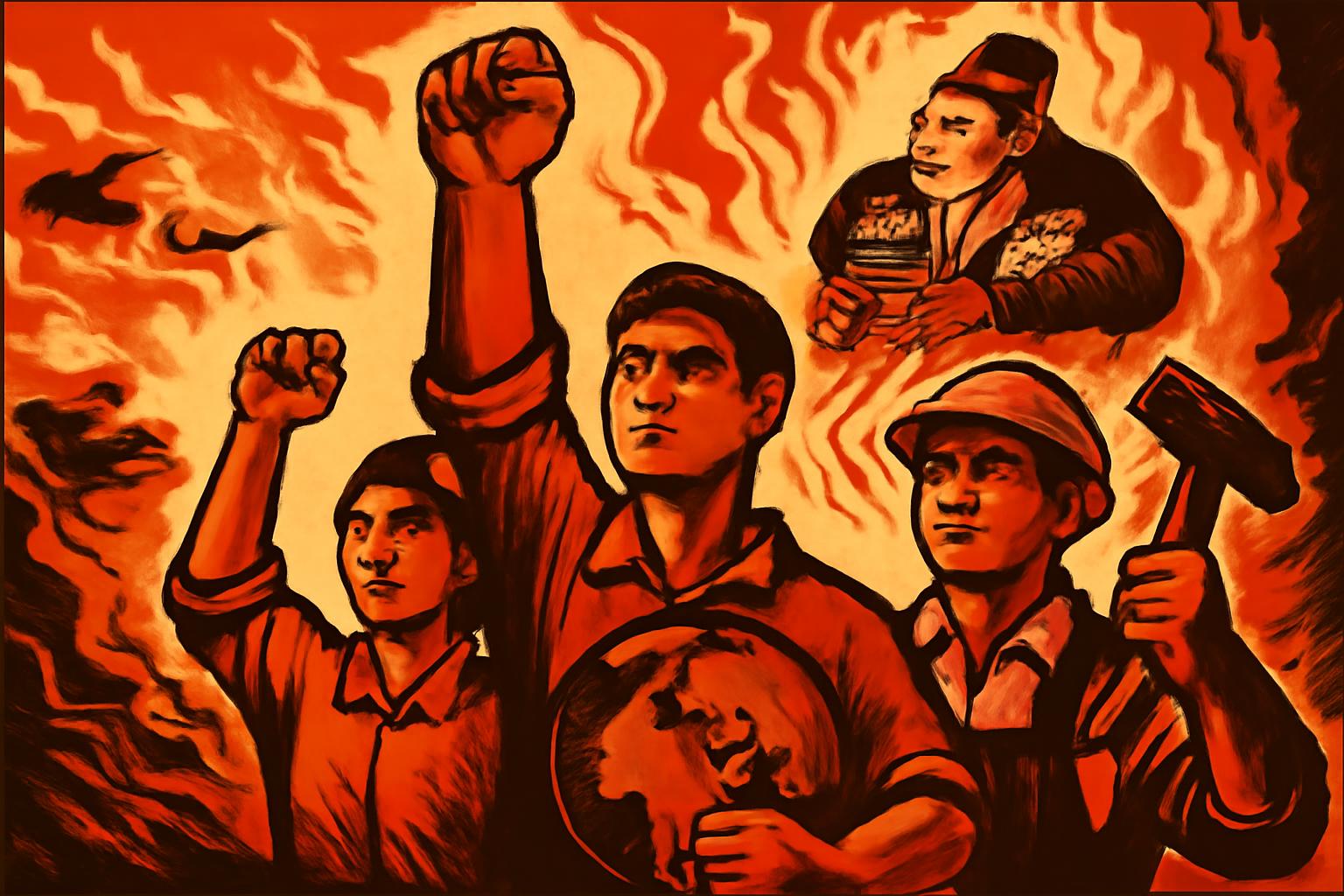Two imperial powers drum to the same tired tune: talk, posturing, and the soothing hum of markets rising as if human suffering could be priced in stock options. In one corner, a leader clutches at the illusion of victory over a distant war; in the other, a rival leader smiles at the prospect of leverage, of prestige, of profit born on the backs of workers and the ruined towns of Ukraine. Everywhere else, the cable news machine tells us this is progress, this is crisis management, this is the modern world keeping its balance. But the balance is not of justice or peace; it is the gravitational pull of capital, the endless arithmetic of dividends, thresholds, and quarterly forecasts that decides who lives and who pays.
The markets’ optimism is not a sign that humanity is marching toward a brighter dawn. It is the warm breath of capital, exhaled over oil, factories, and debt, whispering that war can be managed, that reconstruction can be commodified, that even a ceasefire will be measured by profitability and risk. The so-called progress toward peace is framed in terms of second meetings and potential reforms to markets, while the real world—the worker toiling in a factory, the family facing price shocks, the farmer waiting for a wage that never arrives—receives only a breadcrumb of promises. When the IG Metall boss prescribes trimming dividends to shoulder a sector’s crisis, it is not a call to shared sacrifice; it is a call to socializing the losses of labor and socializing the profits of capital. The dividend lines on VW, BMW, and Mercedes radiate a truth the rulers will never admit: the lifeblood of industrial capital is the sweat and reconciliation of workers, not the generosity of shareholders.
This is not merely a struggle over Ukraine or tariff disputes; it is a confrontation with the logic that commands the world to be a factory of profits first and a home for human beings second. Intel’s rumored surge into state ownership, and the way Applied Materials cuts its forecast in the face of volatility, reveal the new face of imperial capitalism: the state and the boardroom clasp hands to secure strategic control, to calibrate risk, to protect the privileges of the few while the many bear the cost. Yet we must not mistake this for inevitability. If the people—workers across the globe—unite and reclaim the means of production, if production is planned for welfare rather than for the quarterly pulse of a stock market, the pattern of these headlines would transform from a forward headline into a backstory of struggle and triumph.
Let us be clear: our critique is not of work or of skilled labor; it is of the system that treats labor as raw material for extraction. The pretend calm of the oil market and the quiet drift of indices above a hundred points are the masks for chaos suffered by everyday people—the price of energy, the cost of schooling, the rent that climbs while wages stall. The world’s rulers talk grandly of ceasefires and diplomacy; the real diplomacy must be between workers, across borders and languages, who refuse to be pawns in a game that alternates between exploitation and austerity. If reconstruction follows a path defined by banks and bondholders, it will be a reconstruction of inequality; only a reconstruction guided by a people's plan, under workers’ control, can lay a durable foundation for peace.
We stand not against Jews, but against the capitalist system that seeks to divide workers by religion, nationality, or race in order to plunder their labor. We unite with all who resist exploitation—workers in factories, ports, farms, and schools—because the fight against capitalism is the fight for dignity, for social guarantee, for human solidarity. Our commitment to justice is universal; it embraces the diversity of the global working class and rejects any rhetoric that dehumanizes people in the name of protection or fear.
Let the headlines today remind us of what is at stake: the luxury of calm markets built on human disquiet, the promise of “reconstruction” that masks privatization, the shoulder-shrugging attitude toward layoffs as if wages and futures were mere variables on a spreadsheet. The alternative is clear and within reach: organize, seize the means of production, plan the economy for the people, and channel the wealth created by labor into the well-being of all. In this, we find the true path to durable peace, independent of the opportunistic bargains of imperial capitals, and a future where the workers’ power finally writes the ledger.
